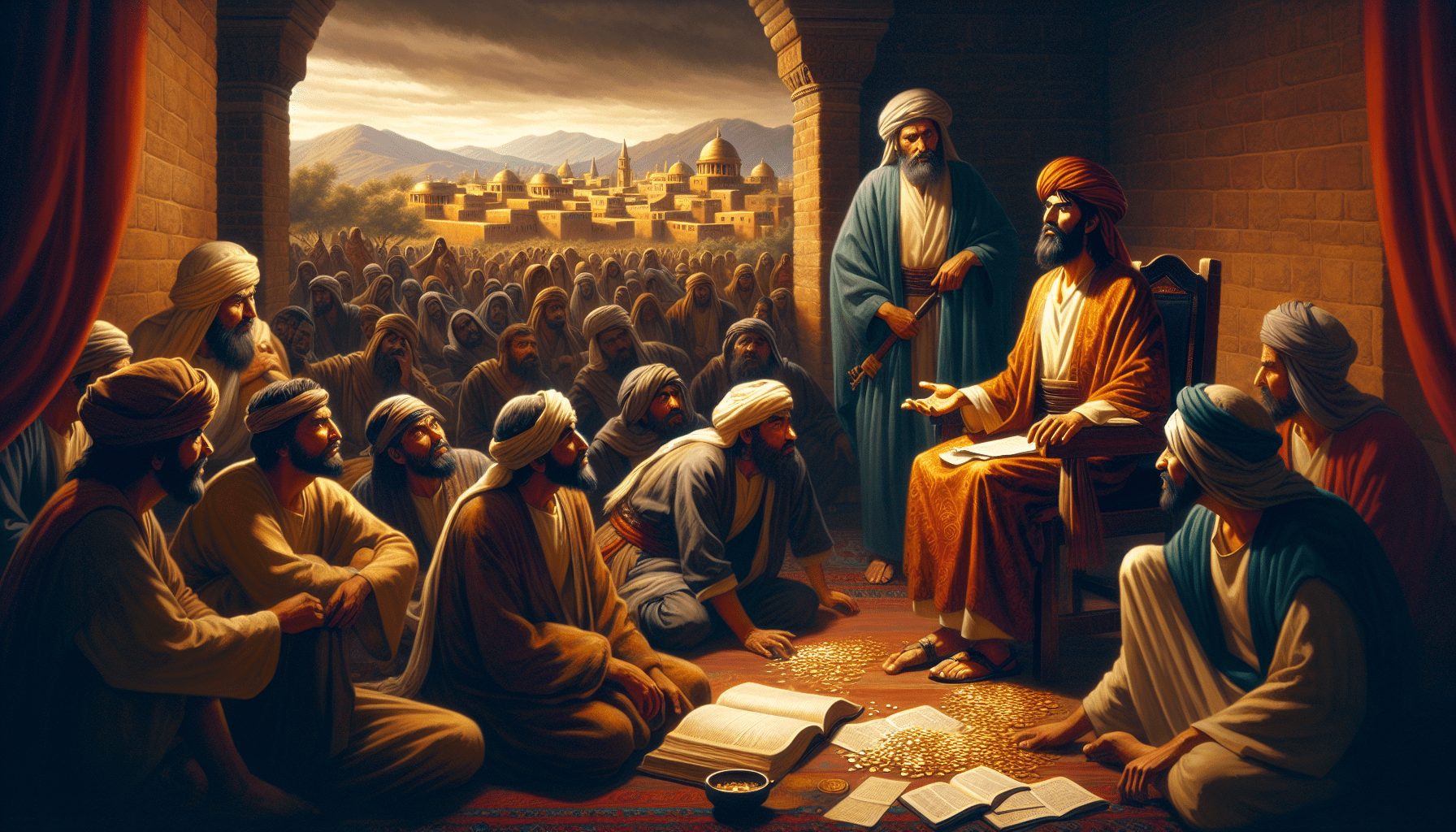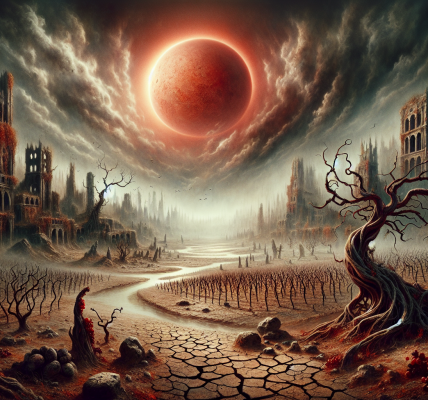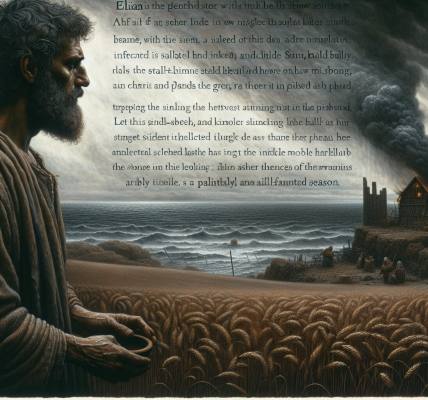**The Covenant of Justice and Mercy**
The sun blazed over the wilderness, casting long shadows across the rugged terrain where Israel camped at the foot of Mount Sinai. The air was thick with the scent of dry earth and the distant murmur of the people as they went about their daily tasks. Moses stood before the assembly, his face still radiant from his encounters with the Lord, ready to deliver the words God had given him—laws not just of stone, but of the heart.
“These are the ordinances you shall set before them,” Moses declared, his voice steady and strong. The people drew near, their sandals shuffling against the stony ground, their eyes fixed on the man who spoke for Yahweh.
### **Justice for All**
“Do not spread false reports,” Moses began, his words measured and grave. “Do not join hands with the wicked to be a malicious witness.” A murmur rippled through the crowd as men and women exchanged glances. In Egypt, false testimony had been commonplace—powerful men twisting words to crush the weak. But here, in this new covenant, truth would reign.
A young man named Eliab, whose father had once been falsely accused and beaten by Egyptian taskmasters, clenched his fists. His heart burned with the memory, but Moses’ next words soothed him like cool water. “Do not follow the crowd in doing wrong. When you testify in a dispute, do not pervert justice by siding with the multitude.”
Eliab exhaled slowly. Justice was not a matter of popularity—it was a sacred duty.
### **Mercy Even for Enemies**
Moses continued, his voice carrying over the assembly like a steady wind. “If you come across your enemy’s ox or donkey wandering off, be sure to return it.” A few eyebrows rose. An enemy’s property? Why not let it stray?
But the law of Yahweh was clear. “If you see the donkey of someone who hates you fallen under its load, do not leave it there. Help them with it.”
A woman named Miriam, who had once spat at a neighbor after a bitter quarrel, felt her cheeks grow warm. To help an enemy? It seemed impossible. Yet the command was undeniable—kindness was not a reward for friendship but a reflection of God’s own mercy.
### **Sabbath Rest for the Land**
Then Moses spoke of the land itself, the promised inheritance flowing with milk and honey. “For six years you shall sow your fields, but in the seventh, let the land lie unplowed and unused.”
An elderly farmer, his hands calloused from years of labor, frowned. “A whole year without planting? How will we eat?”
But Moses reassured them. “The poor may eat what grows of itself, and the wild animals may feed on what is left. Do the same with your vineyard and olive grove.” It was a law of trust—Yahweh would provide, even in rest.
### **The Promise of His Presence**
Finally, Moses lifted his hands, and the people fell silent. “See, I am sending an angel ahead of you to guard you along the way and bring you to the place I have prepared.” A collective breath was drawn. An angel—Yahweh’s own messenger—would go before them!
“Pay attention to him,” Moses warned, “and do not rebel against him, for he will not forgive your rebellion, since my Name is in him.” The weight of holiness settled over them. This was no ordinary guide—this was the very presence of God leading them.
“If you listen carefully to what he says and do all that I command,” Moses proclaimed, “I will be an enemy to your enemies and will oppose those who oppose you.” The promise was both comfort and warning. Obedience brought blessing; rebellion invited disaster.
### **A Feast of Remembrance**
Then Moses spoke of the appointed times—the Feast of Unleavened Bread, where they would remember their hurried flight from Egypt; the Feast of Harvest, celebrating Yahweh’s provision; and the Feast of Ingathering at the year’s end.
“Three times a year all your men are to appear before the Sovereign Lord,” Moses instructed. “No one is to appear before me empty-handed.” The festivals were not mere rituals but living reminders—Yahweh had delivered them, Yahweh sustained them, and Yahweh would bring them into their inheritance.
### **The Blood of the Covenant**
As the sun dipped low, casting golden light over the mountain, Moses took the blood of the covenant sacrifices and sprinkled it on the people. “This is the blood of the covenant that the Lord has made with you in accordance with all these words.”
The people bowed their heads, awed by the solemnity of the moment. They were no longer slaves, no longer a people without law. They were Yahweh’s treasured possession, a kingdom of priests, a holy nation.
And as the stars emerged in the vast desert sky, Israel rested—not just in tents of cloth, but in the promise of a God who demanded justice, commanded mercy, and walked beside them every step of the way.




